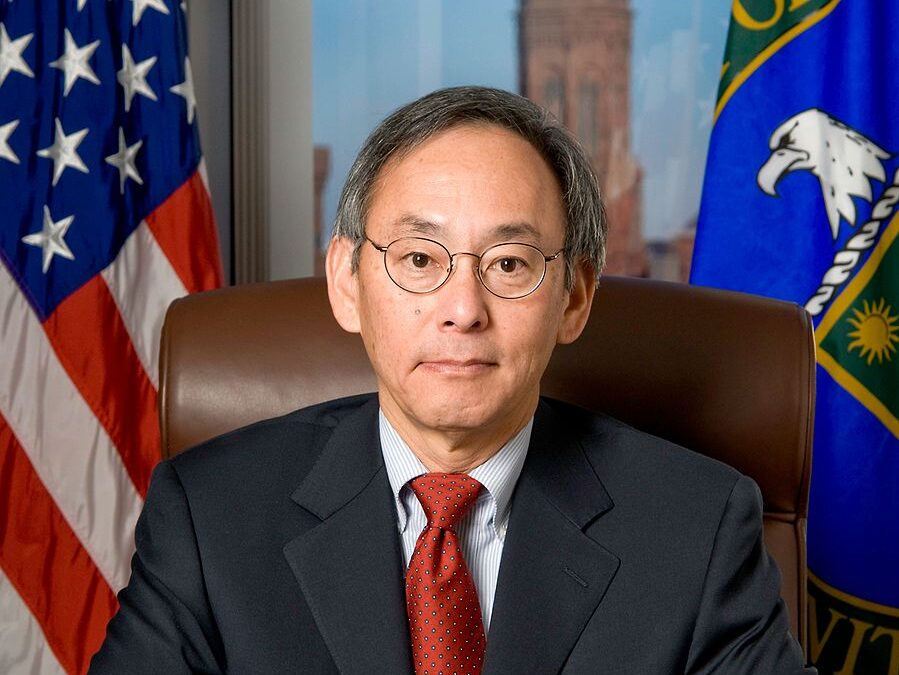Steven Chu served as the 6th director of the Lawrence Berkeley National Laboratory from 2004-2008. He is presently the William R. Kenan, Jr., Professor of Physics and Professor of Molecular & Cellular Physiology in the Medical School at Stanford University. He has published 260 papers in atomic and polymer physics, biophysics, biology, biomedicine, batteries, and holds 10 patents.
While serving as Berkeley Lab Director, Chu was nominated and appointed 12th U.S. Secretary of Energy, a position he held from January 2009 until the end of April 2013. As the first scientist to hold a Cabinet position and the longest serving Energy Secretary, he recruited outstanding scientists and engineers into the Department of Energy. He began several initiatives including ARPA-E (Advanced Research Projects Agency – Energy), the Energy Innovation Hubs, the U.S. – China Clean Energy Research Centers (CERC), and was tasked by President Obama to assist BP in stopping the Deepwater Horizon oil leak.
Prior to his Lab Directorship, Chu was the Theodore and Francis Geballe Professor of Physics and Applied Physics at Stanford University, and head of the Quantum Electronics Research Department at AT&T Bell Laboratories.
Chu is internationally recognized as a proponent of increased government investment in advanced energy research, and he has been a leader in national and international studies including the influential InterAcademy Council report Lighting the Way: Toward a Sustainable Energy Future, the National Academy’s Rising Above the Gathering Storm: Energizing and Employing America for a Brighter Economic Future, and the National Academies’ ongoing study, America’s Energy Future.
Dr. Chu has numerous awards including the 1997 Nobel Prize in Physics for the laser cooling and atom trapping, shared with Claude Cohen-Tannoudji and William Phillips. He holds 26 honorary degrees and is a member of the National Academy of Sciences, the American Philosophical Society, the American Academy of Arts and Sciences, the Academia Sinica, and is a foreign member of the Royal Society, the Royal Academy of Engineering, the Chinese Academy of Sciences, and the Korean Academy of Sciences and Technology.
